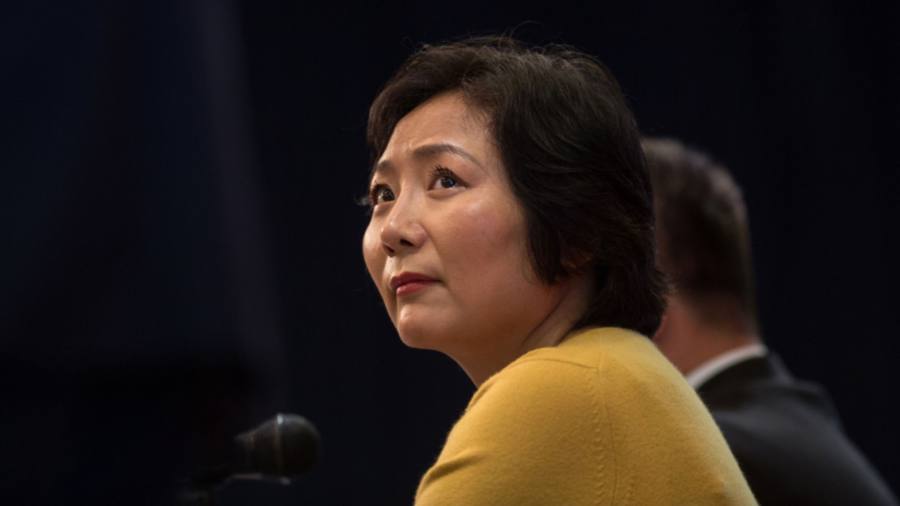
This article is an on-site version of The Lex Newsletter. Sign up here to get the complete newsletter sent straight to your inbox every Wednesday and Friday
Dear reader,
The Great Resignation is spreading to the top echelon of Chinese business. Billionaire founders and chief executives are calling it quits.
The latest is Wu Yajun. Just months ago, the former journalist was ranked as the world’s richest self-made woman. On Monday, she stepped back from her position as executive director and chair of Chinese developer Longfor Group.
Wu blamed her departure on health worries. But anyone seeking to mint a conspiracy theory had plenty of material to work with. Her peer Pan Shiyi quit as chair of Soho China in September.
It is nothing new for bosses of highly leveraged, out-of-favour property groups to disappear from public view. The difference with Wu and Pan is that they managed their businesses with relative conservatism.
Soho China’s healthy financials include very low debt ratios. Longfor has, for its part, held the highest credit rating among private sector Chinese developers. No debt is due for the rest of the year.
The company even repaid a syndicated loan early in a show of strength. It is one of the rare developers to report net income growth this year and to continue paying dividends.
Longfor stock has fallen more than a third in the past week, bringing the drop to 70 per cent over the past year. Shares in Soho China have tumbled to a record low since Pan left the company to focus on philanthropic projects.
The departures invite comparisons with the tech sector, where a string of top bosses quit in recent years amid an official crackdown. Jack Ma led the trend in 2019, retiring as chair of Alibaba after an ill-judged speech in which he criticised state regulators. In 2020, ByteDance founder Zhang Yiming stepped down as chief executive and chair. In 2021, Colin Huang, the man behind ecommerce platform Pinduoduo, left his chief executive role.
The shares of Chinese developers have been plumbing new lows. Their collective woes are imposing a growing burden on lending banks. It is reasonable to surmise that Beijing may be mounting a general clear-out of bosses at the top of a sector that is in the official bad books.
The experience of the tech sector suggests worse is coming. The departure of tech group chiefs marked the start of protracted share price underperformance.
Alibaba shares are, for example, down 80 per cent since October 2020. That was when Ma made his last, fateful public appearance at a conference in Shanghai.
The plunge in the shares of these companies that have lost their leaders is not just a knee-jerk reaction. For tech groups, the drop reflects the value investors placed on the innovative ideas of business leaders.
In the property sector, the personal capital of billionaire entrepreneurs includes extensive contact networks — and the cash piles they have sometimes used to prop up faltering shares.
But conspicuous riches are another reason property developers now find themselves in Beijing’s crosshairs. It is cracking down on “excessive wealth”.
Chinese president Xi Jinping now has more firepower for his campaign to reform social values. He cemented his personal power by winning an unprecedented third term as China’s supreme leader at the 20th Communist party congress last month. At the same time, he packed an important governing council with party hardliners. His challenge to China’s billionaires was a key theme at the event.
Property sector defaults are rising. But central government is unlikely to bail out struggling developers. This reflects the sheer size of the sector’s debts. Developers have $120bn worth of debt maturing this year alone. Public revenues are falling, partly because of declining land sales. Disappointing economic data point to chilly macroeconomic headwinds.
China’s tech sell-off is now entering its third year. The rout of the property developers started much more recently. Further drops should be expected. Any foreign investors still exposed to Chinese property groups should follow their leaders out of the door.
Enjoy the rest of your week,
June Yoon
Lex Asia editor
If you would like to receive regular Lex updates, do add us to your FT Digest, and you will get an instant email alert every time we publish. You can also see every Lex column via the webpage
Recommended newsletters for you
Cryptofinance — Scott Chipolina filters out the noise of the global cryptocurrency industry. Sign up here
Free Lunch — Your guide to the global economic policy debate. Sign up here